How does aortic stenosis cause syncope?
This is something that has been debated for decades. And, remarkably, it isn't quite settled, even in 2020.
What do you think is the most likely explanation?
[SVR = systemic vascular resistance]
This study suggests that syncope caused by aortic stenosis (AS) is exercise-related.
After aortic valve replacement, only those with exercise-related syncope experienced a decrease in subsequent events.
Something about exercise is key.
ncbi.nlm.nih.gov/pubmed/8280519
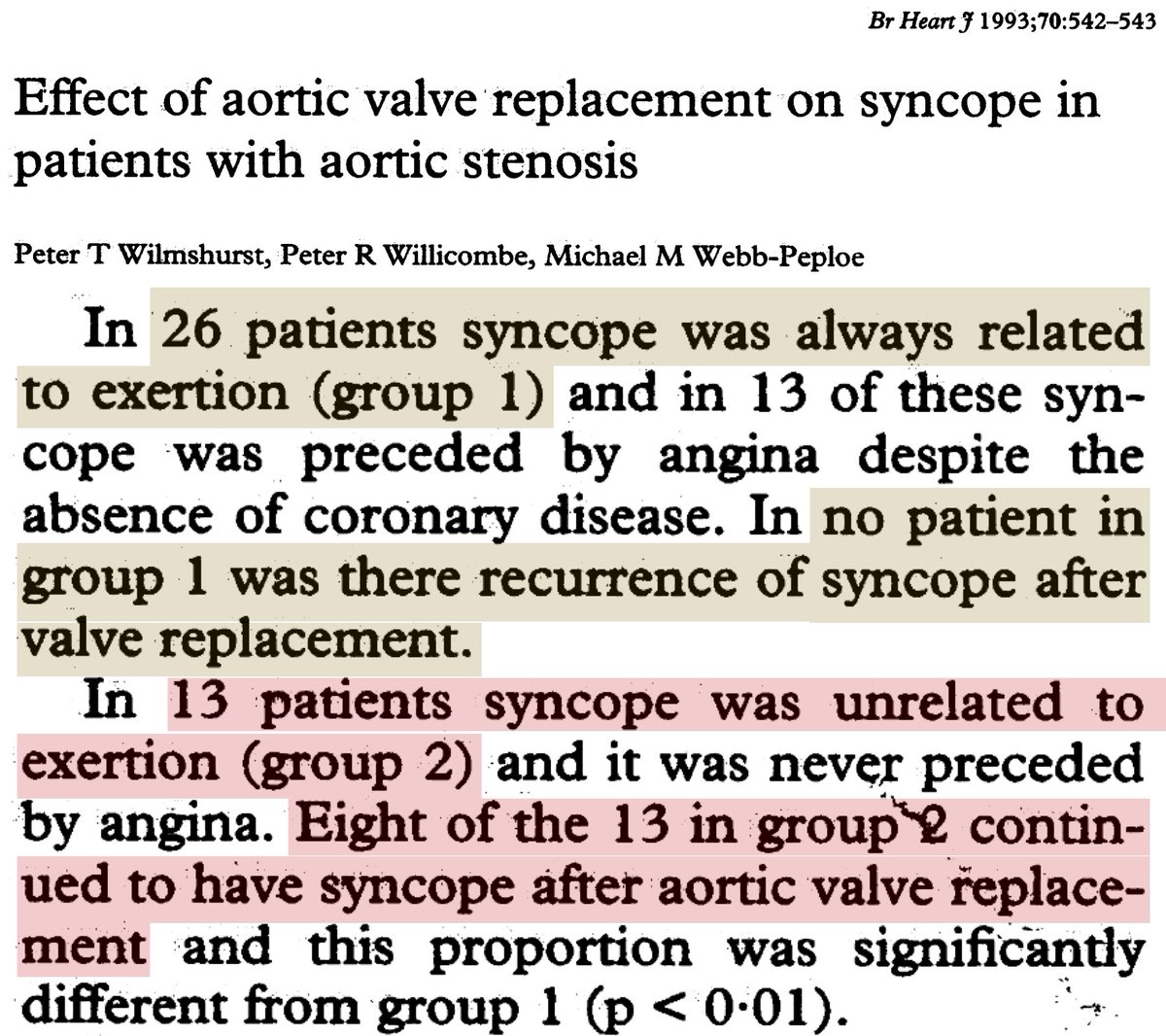
In those without aortic stenosis, what happens during exercise?
[SVR = systemic vascular resistance; CO = cardiac output]
The normal response to exercise includes:
↑cardiac output
↓SVR
The decrease in SVR results from vasodilatation in active skeletal muscles.
ncbi.nlm.nih.gov/pubmed/14814058
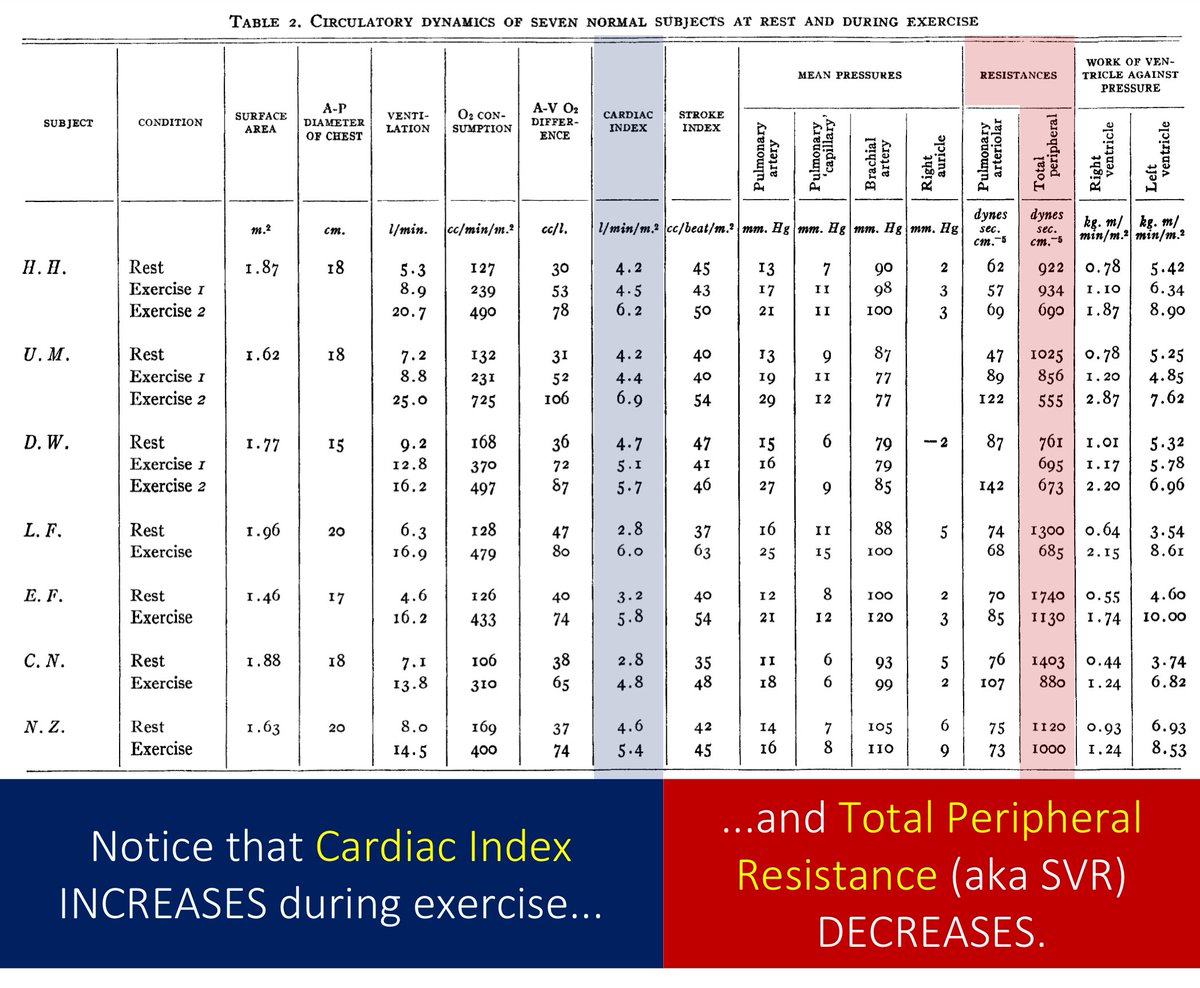
Recall: MAP = CO x SVR
Without AS: MAP does not fall during exercise as the increase in CO counters the decrease in SVR.
With severe AS: the ability to augment CO may be limited by outflow obstruction. This blunts the ability to preserve MAP.
Or so posits one hypothesis.
There may be another factor contributing to a decrease in SVR in patients with severe AS:
Stimulation of left ventricular baroreceptors can lead to reflex vasodilation. This is known as the Bezold-Jarisch reflex.
ncbi.nlm.nih.gov/pubmed/6150181
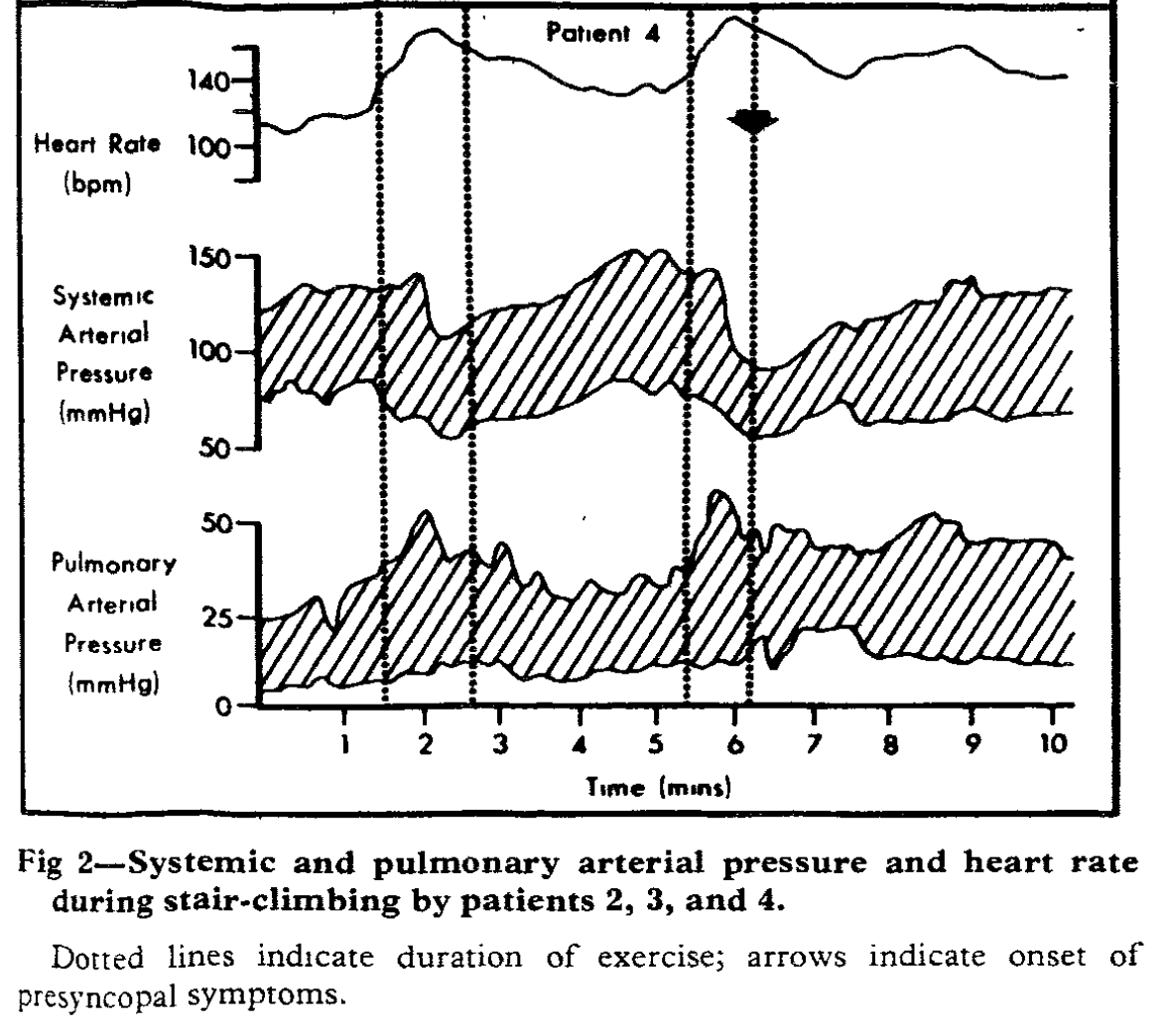
So, this first hypothesis states that vasodilation (either as a normal response to exercise or as part of a reflex from ventricular baroreceptor stimulation) leads to...
...a fall in systemic blood pressure...
...and cerebral perfusion...
...resulting in syncope.
I also want to highlight interesting studies suggesting the exact opposite is happening.
Patients with symptomatic AS may have reduced arterial compliance with exercise.
Result: LESS of a drop in SVR than might otherwise be expected.
ncbi.nlm.nih.gov/pubmed/19204303
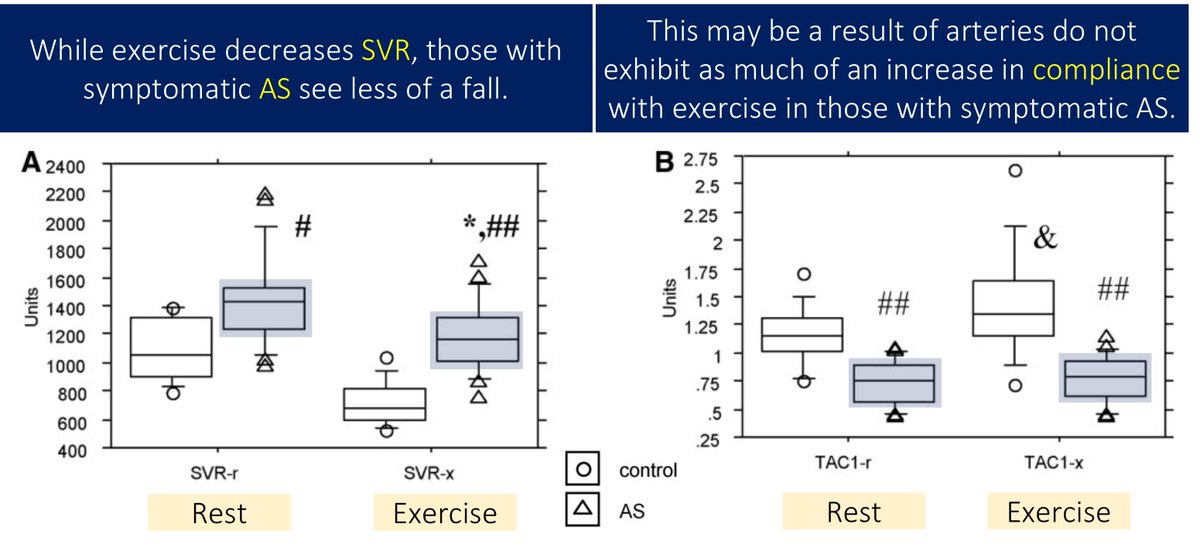
If the SVR does not decrease, the left ventricle must overcome greater valvuloarterial impedance.
Valvuloarterial impedance accounts for afterload from BOTH the stenotic aortic valve AND the arterial blood pressure.
There is support for the idea that valvuloarterial impedance - and not the severity of stenosis - that predicts syncope.
I wonder if what's seen in tweet 8 might result in reduced CO in response to exercise.
And syncope.
ncbi.nlm.nih.gov/pubmed/24036387
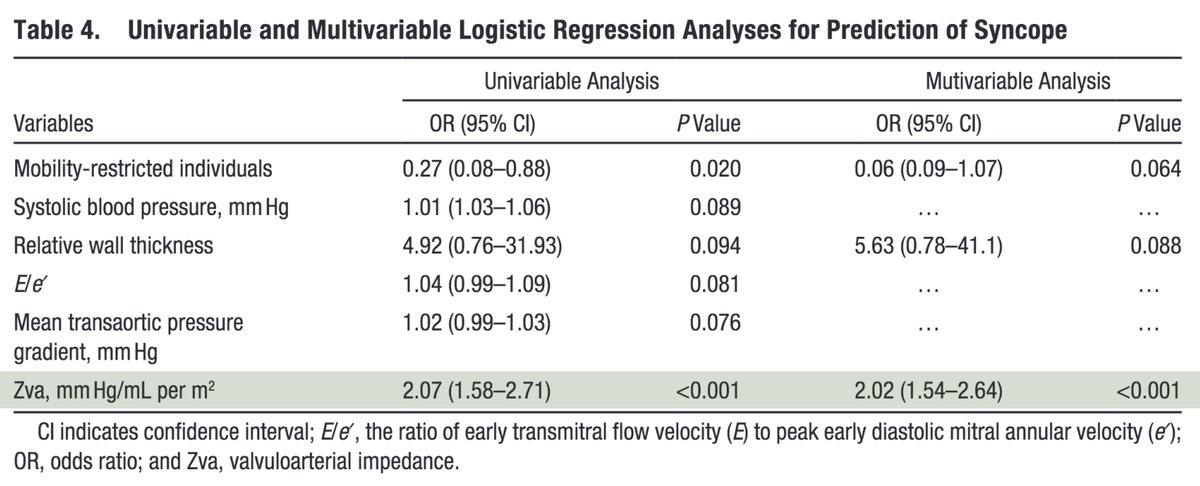
I also wonder if this phenomenon partly explains why nitroglycerine was found to be beneficial in critically Ill patients with left ventricular dysfunction and severe AS.
ncbi.nlm.nih.gov/pubmed/12724481
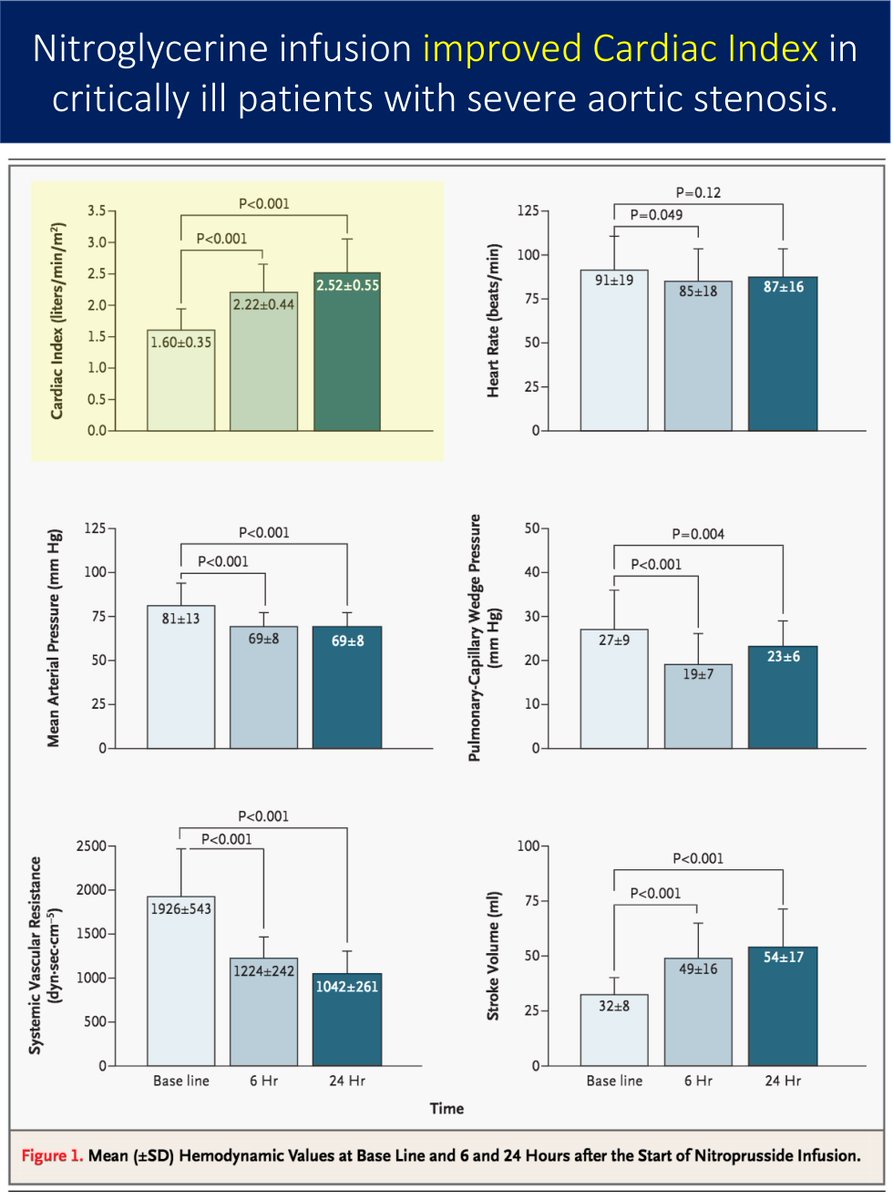
I haven't seen any articles referencing the reduced arterial compliance as a mechanism of syncope.
Have others?
Before closing, I'm curious:
What do you NOW think is the most likely explanation for syncope in aortic stenosis?
[I'm not sure there is a "right" answer.]
➣ Normal: exercise leads to ↑CO and↓SVR
➣ Aortic stenosis: ↓SVR, coupled with an inability to raise CO, may lead to syncope
➣ Alternative: poorly compliant arteries lead to increased valvuloarterial impedance, LV failure, and syncope.










